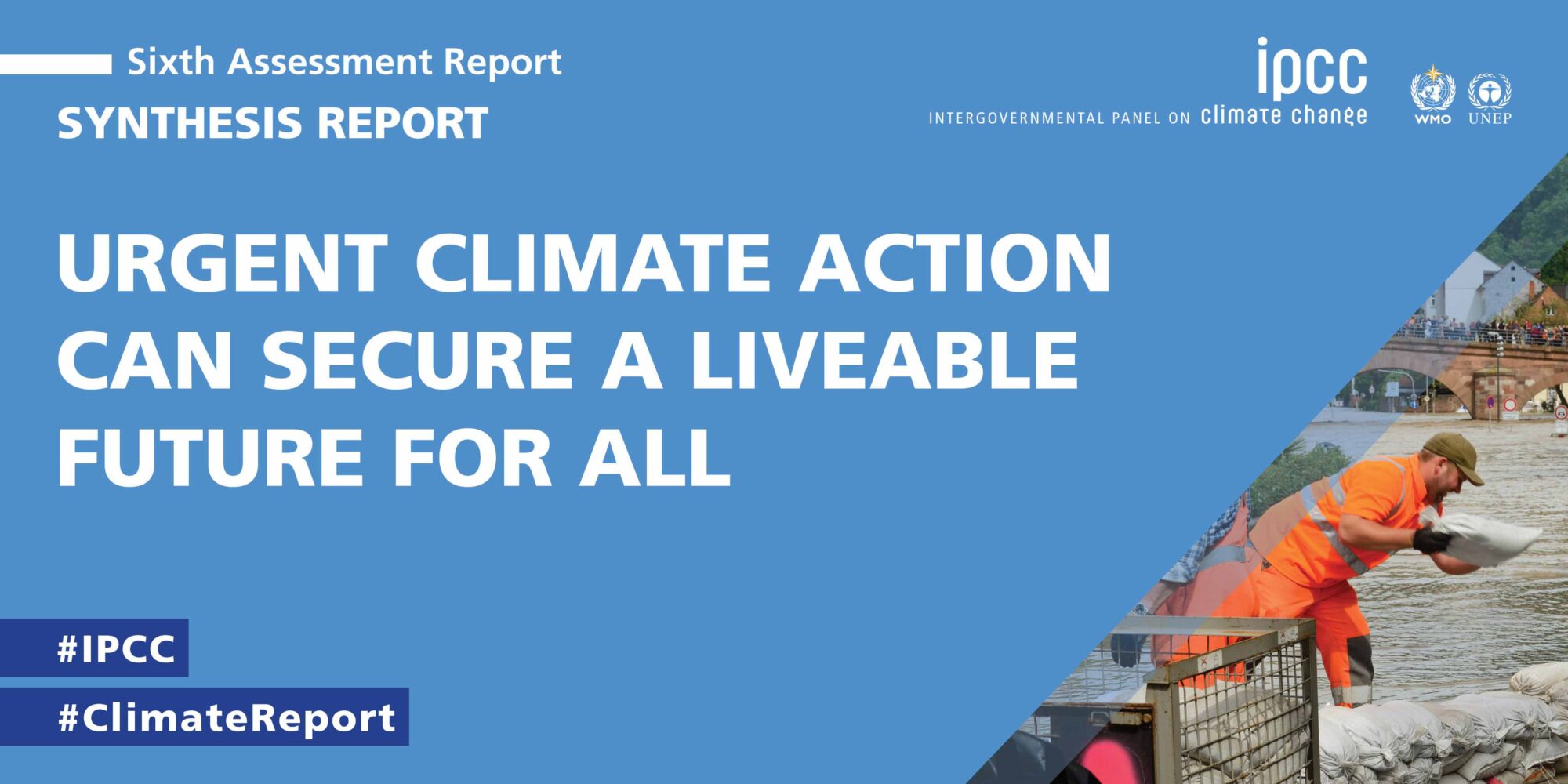
These reports are a clarion call to massively fast-track climate efforts by every country and every sector and on every time frame
United Nations Secretary-General António Gutteres.
On March 20, 2023, the United Nations Intergovernmental Panel on Climate Change (IPCC) released its new report which includes a Summary for Policymakers, Headline Statements, and more. This sixth U.N. report will serve as the basis for negotiations at the November/December 2023 global climate summit, COP28 is held under the auspices of the United Nations. The host of COP28, the United Arab Emirates (UAE), is a major oil production nation and the official leading the preparation for the summit is the head of UAE’s state oil company, Sultan Al Jabar.
The reports released this March brought heavy focus on both climate solutions and adaptation needs, and more broadly, these United Nations reports stated the biggest warnings:
- Pace and scale current for climate action are insufficient to tackle climate change.
- Adverse impacts from human-caused change will intensify.
- The hope: Mainstreaming effective and equitable climate action is necessary.
Several report authors made a clear, new point: FAIRNESS in climate action is one of the many solutions that are needed.
The IPCC report makes the case to see practical progress, and the report provides large amounts of evidence that will help those pressing for a rapid phase out of fossil fuels. Report authors stress that much more money is needed to help countries adapt to the hazards of warming and pivot away from fossil fuels. They said, “If climate goals are to be achieved, both adaptation and mitigation finance would need to increase at least three to six times greater than current climate investment.”
The report lays out many known climate change solutions and shows what would make the biggest difference to keep warming as low as possible. “The point is that we need to do everything we can to keep greenhouse gas emissions as low as possible.”
The IPCC has finalized the Synthesis Report for the Sixth Assessment Report (AR): Climate Change 2023. It distills the latest science pertinent to our profound global challenge. The average global temperature is 1.1 degrees Celsius higher than it was as the start of the Industrial Revolution and there’s a high chance of exceeding the 1.5 degree Celsius target in the Paris Agreement. That would require reducing greenhouse gas emissions by half by 2030, and then add no more carbon dioxide to the atmosphere by the early 2050s. The question is: whether the brakes are applied, or we don’t act sufficiently and blast through to much higher temperatures.
António Gutteres, the United Nations Secretary-General spoke at the release of these papers that their intent was describe “how to defuse the climate bomb.” Gutteres continued: “our world needs climate action on all fronts: everything, everywhere, all at once.” The continued use of fossil fuels is harming all of us and harming some of us a lot more. In the Summary for Policy Makers, authors state “There is a rapidly closing window of opportunity to secure a livable future for all.” They assign their “very high confidence” to those statements.
Bear in mind that the world now is home to 8 billion people and that ten percent of the world’s households are responsible for 34-45 percent of all greenhouse gas emissions.
The report authors said that if we reduce emissions in half by 2030, global warming will slow down and that progress will be visible within 20 years.
